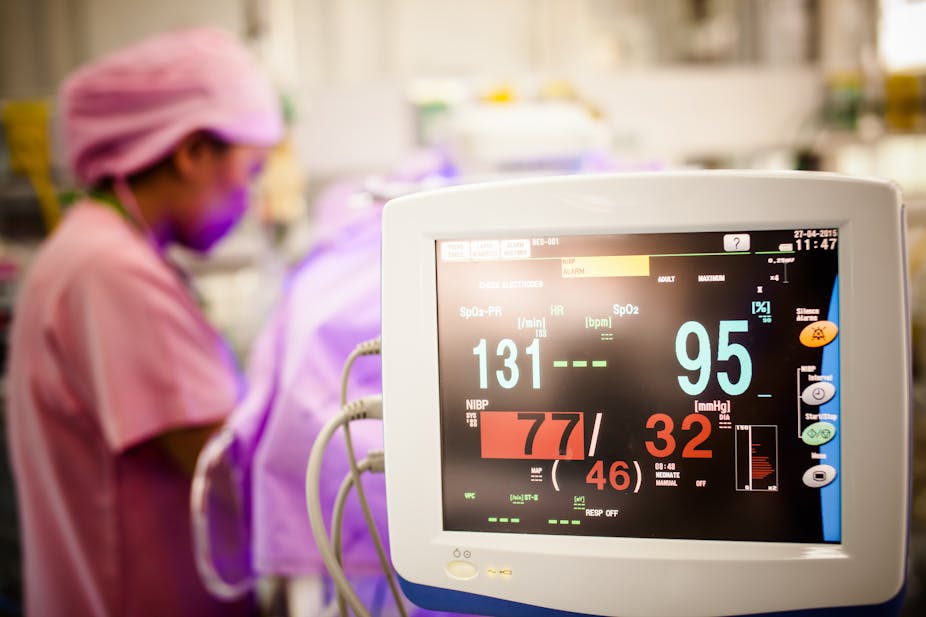When someone makes a nasty quip, cuts us off in traffic, ignores our suggestions or takes credit for our work, we get mad, sad and even angry. Rudeness, even just little, can really hurt. We know these reactions can be harmful, both to ourselves and those around us, but recent research suggests that the emotional reactions we have to rudeness tell only half of the story. There are cognitive effects we are not even aware of. In fact, this is what I study – how experiencing rudeness can damage performance by affecting our thinking and decision-making.
For example, in a study, my colleagues and I found that when people experience rudeness, they unknowingly become biased toward rude interpretations of social interactions. In other words, when we experience rudeness, we tend to think others are being rude to us as we go forward.
Rudeness has also been shown to draw cognitive resources away from individuals, causing them to perform worse and make more mistakes: for example, not remembering details of a conversation.
If you are writing up a report or making a hamburger for dinner, the costs of mistakes are inconvenient. Imagine if you are a doctor working on an infant in a NICU? Suddenly, the costs of simple mistakes caused by rudeness become much bigger. Shockingly, this is exactly what we found in a new study – rudeness causes medical teams to perform worse, and ultimately this could have huge costs for patients.

Disruptive behaviors in medical settings
When researchers think about ways to improve the performance of doctors and nurses, they typically focus their studies on procedures, devices, and medicines that can improve the ways we treat illness and injury. But there is more to good performance than better procedures or better devices.
Recently, researchers have started to explore what they call disruptive behaviors – behaviors that make it harder for people to work together or communicate – in medical settings. Often these studies focus on negative interactions between doctors and nurses.
Sometimes referred to as disruptive physicians, doctors who treat nurses poorly can cause nurses to become stressed about their jobs and have lower job satisfaction. There is some evidence that disruptive physicians can harm the performance of those around them. But can they really harm patients? That is what we wanted to find out.
Often disruptive behaviors involve major negative interactions, like screaming at a nurse or harshly insulting a colleague. However, other research suggests that simple incivility can have very harmful effects. So, in addition to exploring whether disruptive behaviors can harm medical team performance, we also sought to explore whether an encounter as minor as incivility could be disruptive.
Disruptive docs make their colleagues perform worse
To find out if and how rude physicians harmed patients, we conducted an experiment in a simulated neonatal intensive care unit (NICU). The experiment involved 24 medical teams (one doctor, two nurses on each team) in Israel that completed a simulation where they had to correctly diagnose a newborn whose condition was declining rapidly.
In the simulation, the baby in the NICU had necrotizing entrocolitis (NEC), an inflammation in the intestines, which can lead to tissue death. NEC is rapidly progressing condition that can quickly result in death if not treated quickly. Teams were not told of the infant’s condition prior to the simulation – they had to diagnose the condition themselves.
We chose NEC for the simulation because it progresses so fast, and the proper treatment requires quick and accurate diagnosis and treatment. The effects of rudeness in this type of setting would be readily detectable.
Before the simulation started, the teams received a welcome message from an experienced physician who was watching the procedure. In half of the teams, during this welcome message, the doctor said that he had not been very impressed with the performance of medical professionals in the country in which this experiment was taking place, thus offering a very slight bit of incivility prior to the start of the experiment. After the medical teams had completed the simulation, we had three independent judges (who didn’t know we were studying the effect of incivility) rate the performance of the doctors and nurses.
The results were staggering and frightening. The groups that were exposed to the rude comment did far worse in the simulation. A simple insult from a third party virtually destroyed the performance of the participants. Both their diagnostic skills and their performance suffered dramatically – meaning not only did they have a harder time figuring out what to do, but that even when they knew what to do, they had a harder time doing it.
A small slight can be a pretty big deal
This study shows that the consequences of simple negative social interactions can be catastrophic. Most people’s attitude toward rudeness is that it’s not that big a deal and people will “get over it.” More and more, researchers are finding that this isn’t true – this study shows that in certain contexts the consequences of rudeness can be deadly.
This is especially troublesome due to the fact that these behaviors are very common – a 2010 study suggested that nearly two-thirds of operating room staff had witnessed these behaviors in the OR, and more than half said they had been on the receiving end of these types of behaviors.
However, this conclusion is not limited to doctors. Imagine a similar situation for truck drivers – simply being cut off by a driver can cause a deadly accident down the road. Maybe you should think twice before you weave around that semi next time you’re driving to the beach.


